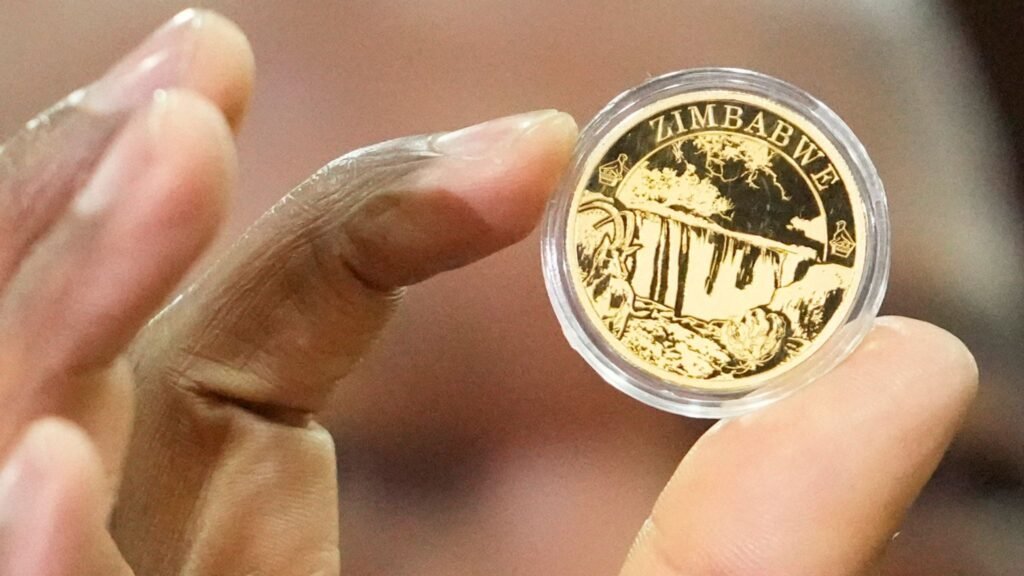Zimbabwe’s Gold-Backed Digital Currency: Here’s What You Need to Know

Zimbabwe has launched a new gold-backed digital currency as its central bank aims to stabilize the country’s economy amid hyperinflation and a rapidly devaluing currency. The digital currency, which can be purchased with Zimbabwean dollars or foreign currency, is intended to act as a store of value and a means of exchange for peer-to-peer and peer-to-business transactions.
What is a Gold-Backed Digital Currency?
A gold-backed digital currency is a currency that is backed by a certain amount of gold, which helps keep its value stable. Unlike fiat currency, this type of currency is tied to the market value of gold. Zimbabwe’s gold-backed digital currency will be used as legal tender and a store of value alongside the Zimbabwean dollar and bond notes. Users can buy and sell it using Zimbabwean dollars and other foreign currencies. Ideally, backing a digital currency with gold involves having a certain measure of gold reserves and depends on the current market value of gold.
Why Has the E-Currency Been Introduced?
Zimbabwe has been grappling with hyperinflation for the past two decades and currently uses both the United States dollar and the Zimbabwe dollar for transactions. The latest move to introduce gold-backed coins is part of a wider plan by the central bank to stabilize the country’s local unit, which has been faltering against the US dollar, by mopping up excess liquidity in the market. The Zimbabwe dollar is currently trading at $1 US for every $2,000 on the black market. Historically, there have been major policies around currencies as legal tender in Zimbabwe, including the 2009 adoption of the US dollar after hyperinflation decimated the value of the local currency.
Recent developments in Zimbabwe’s currency market have raised concerns that the country is undergoing an ongoing re-dollarisation process. Zimbabwe was forced to abandon the use of the US dollar after greenbacks disappeared from circulation, leading the central bank to introduce bond notes in 2016, which it claimed had the same value as the greenback. Last year, Zimbabwe introduced gold coins in an attempt to stabilise the currency, but this did not slow the rapid devaluation of the Zimbabwean dollar against the US and other major currencies.

What is the reception of e-currency?
According to Clive Mphambela, the chief director of communications in the Ministry of Finance and Economic Development, e-currencies are financial instruments created as an investment alternative to gold coins and other assets. However, projections for the e-currency have failed to convince economists.
Godfrey Kanyenze, economist and founder of the Labour and Economic Development Research Institute of Zimbabwe (LEDRIZ), quoted by (Al Jazeera) praised the introduction of digital currency but doubts it will solve Zimbabwe’s currency problems. Kanyenze believes that the idea of launching digital coins is admirable in its ability to mop up excess liquidity and stabilize the local unit, but it is not different from the gold coins introduced by the central bank last year, which have failed to stem the money supply growth.
Kanyenze argues that Zimbabwe is currently struggling with a confidence and trust deficit stemming from legacy issues such as hyperinflation in 2009, which resulted in people losing their money and savings. He further points out that while the gold-backed digital coins may be beneficial, they cater to the rich and are exclusionary, leaving ordinary people, who face extreme poverty, without savings.
Former Finance Minister Tendai Biti is against the new digital currency, suggesting that the central bank should instead establish market stability by floating the Zimbabwe dollar.



















